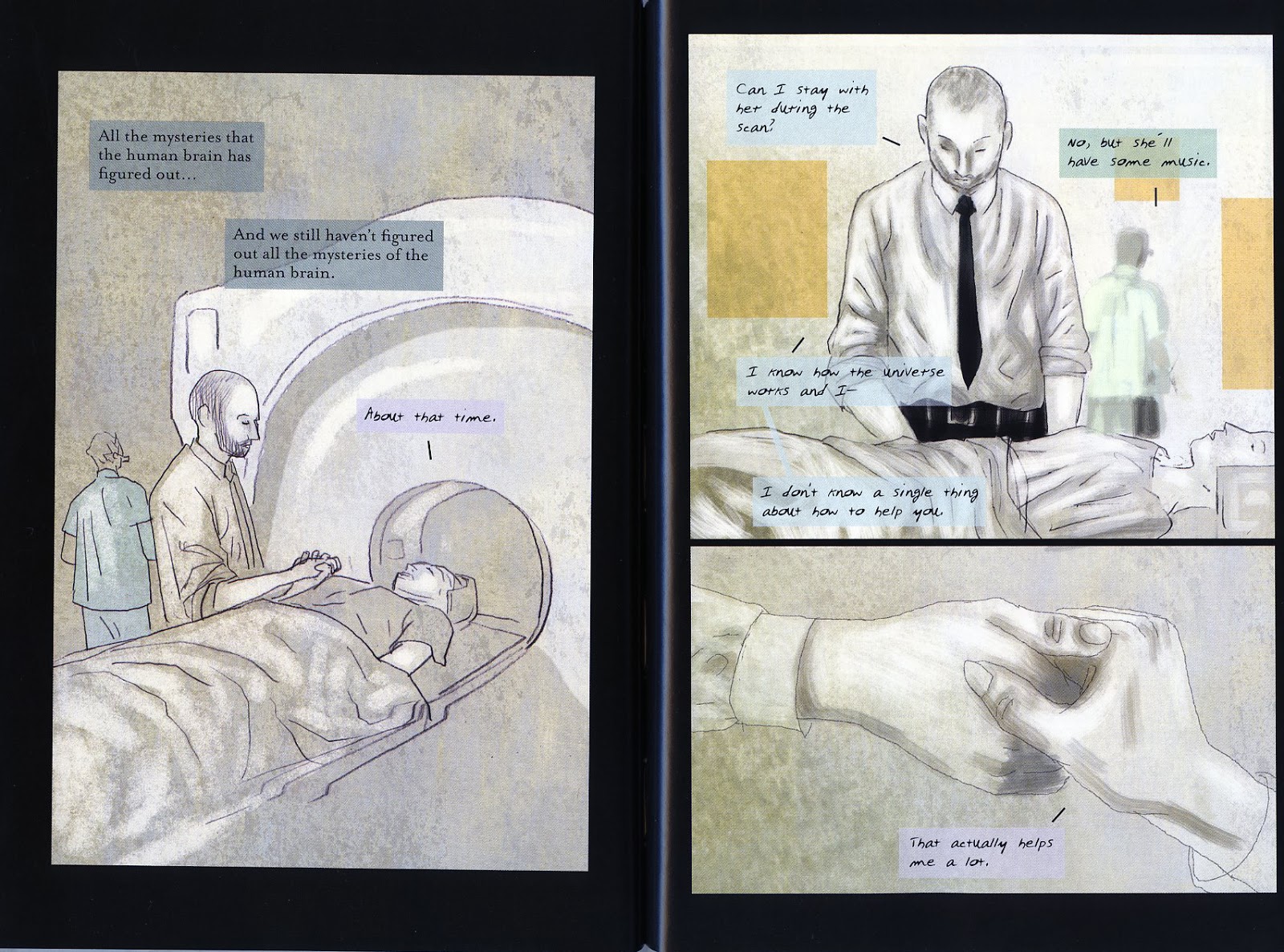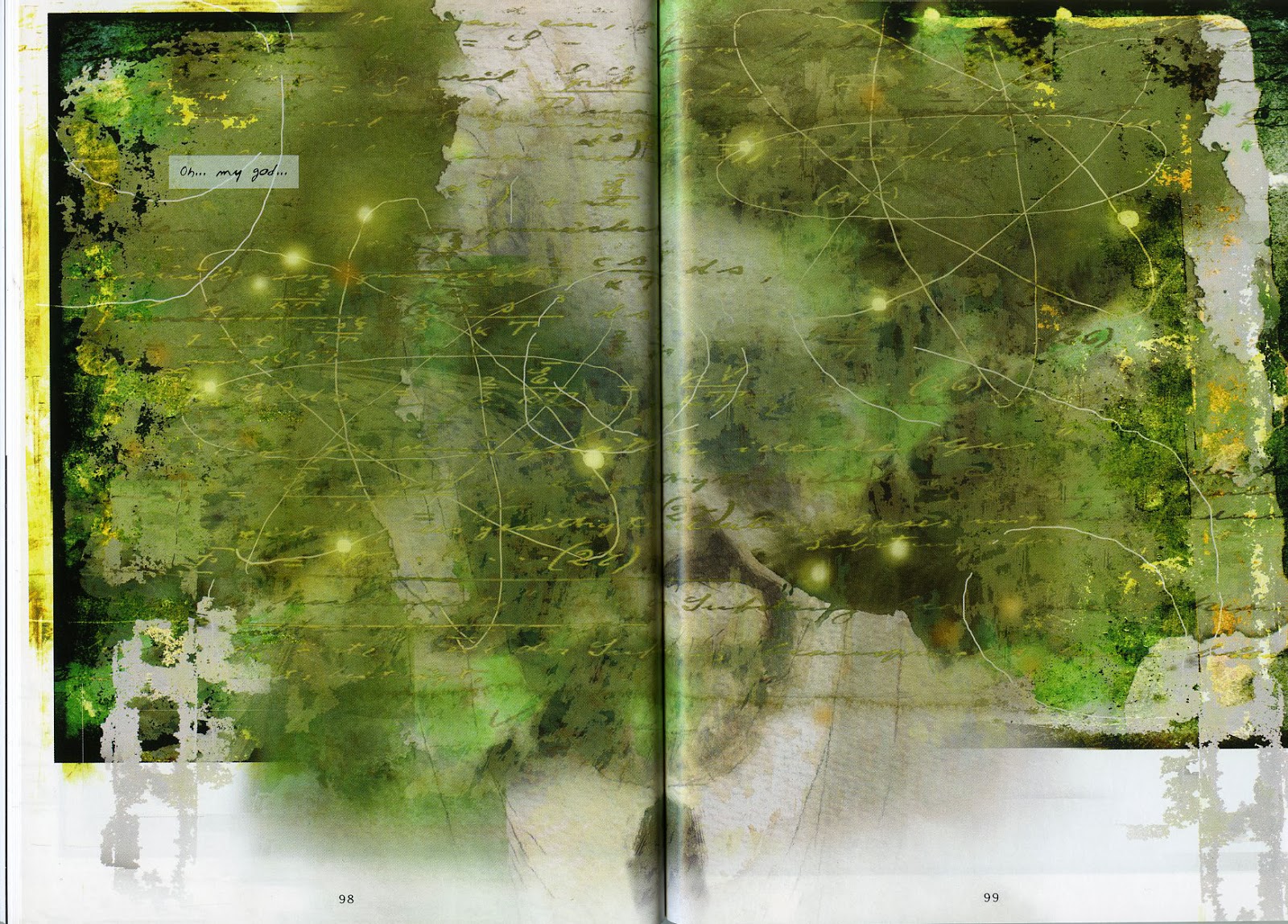Some years ago, a student recommended Steven Seagle's It's A Bird as a text for the superhero portion of my Graphic Novel course. Intrigued, I dived in and got a great deal out of it. However, I thought its premise, that a very limited man could not identify with a Superman, was too thin for two weeks' course discussion, and that the theme had been addressed more succinctly in Michael T. Gilbert's Mann and Superman.
However, I was quite impressed by the book, and when Seagle's Genius appeared this year, I was tantalized.
The story of a promising physicist whose fire burned out too early, Genius is told in awed yet vibrant tones. Visually and verbally, this book is the poetry of loneliness and inadequacy. Reading it, I kept returning to the line from Leonard Cohen's Story of Isaac: "my father's hand was trembling with the beauty of the word."
The physicist in question, Ted Marx, lives in fear of losing his job, of losing his dying wife, of alienating his distant father-in-law, of losing contact with his children who are growing progressively farther away from him.
But mostly, he fears himself, and fears that he will never fully understand or equal the work of his idol, Albert Einstein.
One day, his father-in-law casually mentions that he knew Einstein, that he served briefly as his military guard. Of course, Ted does not believe him at first. The old man must be addled; he cannot have known my God!
But he realizes the elder man tells the truth ("work on my used car" is a private father-and-son moment, nicely played).
And he learns that Einstein confided a secret to him. Awed, he asks for more information.
Only to be rebuffed. The elder man's principles are not to be compromised, especially to a man who he does not respect.
As his increasingly smaller life comes into conflict with the magnitude of the promise in the elder man's secret, Ted feels himself diminishing. This encounter with his dying wife sums up his utter failure to grasp the distinction between knowledge and wisdom.
At last, the elder man relents and tells Ted Einstein's secret.
I can tell you all that and it will spoil none of the book's rapture.
There's a school of writing in graphic novels (also in text novels) in which things are plainly stated, and the magnitude of their meaning is made clear by their simplicity. Clearly, Genius is a very successful example of this.
Teddy Kristiansen's painted art is sublime. The stylized faces do take a tad of getting used to, but it's a short lived problem. I've enjoyed his work on Grendel, Sandman, Sandman Midnight Theater, the aforementioned It's A Bird, and my personal favorite, his Deadman story with Neil Gaiman from the SOLO series. His style reminds me of another personal favorite, Bernard Krigstein, in that they both use very raw and stylized elements in service to the story. Kristianses is slated to release another collaboration with Seagle in 2014.
This is another book that will bear revisiting- not daily, but often. It's a beautiful, humbling read.
Next: Best Comics of 2013, No. 4: another for the mind.









No comments:
Post a Comment